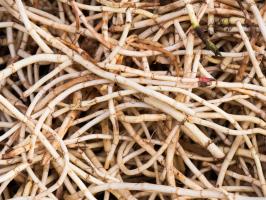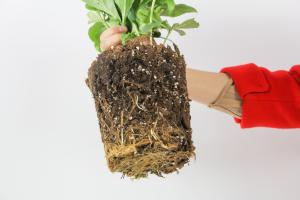Introduction
Pot plants can be found in many households and they bring life and freshness to any room. However, not all pot plants are the same. Some are taller, some have larger leaves, and some are lighter than others. In this article, we will explore why some pot plants are lighter than others.
Factors Affecting the Weight of Pot Plants
There are several factors that can affect the weight of pot plants. One of the most important is the type of soil used. Some soils are denser and heavier than others, which can contribute to the weight of the plant. Another factor is the size of the pot. A larger pot may require more soil, increasing the weight of the plant. Additionally, the amount of water and nutrients a plant receives can also affect its weight. Plants that are over-watered or over-fertilized may be heavier than those that are not.
Photosynthesis and Weight
One of the key processes that affects the weight of pot plants is photosynthesis. Photosynthesis is the process by which plants convert carbon dioxide, water, and sunlight into glucose, which they use for energy. During photosynthesis, plants also release oxygen into the atmosphere. As a result, as plants grow and photosynthesize, they become heavier. However, the amount of photosynthesis a plant undergoes can vary depending on factors such as light levels, temperature, and humidity. If a plant is not receiving enough light, for example, it may not be growing as much as it could be, which can impact its weight.
Plant Species and Weight
The weight of a pot plant can also be influenced by its species. Different species of plants have different growth rates and biological requirements, which can affect their size and weight. Some plants are naturally larger and heavier than others, while some are naturally smaller and lighter. Additionally, different plant species have different foliage densities and shapes, which can impact their overall weight. Plants with larger, wider leaves may be heavier than those with smaller, narrower leaves, for example.
Plant Health and Weight
Finally, the overall health of a pot plant can also impact its weight. Plants that are unhealthy or stressed may not be growing as much as they should be, which can result in them being lighter. Common factors that can contribute to plant stress include over-watering, under-watering, pests, disease, and environmental factors such as extreme temperatures or humidity levels. Ensuring that a pot plant is healthy and well-cared-for is essential to promoting optimal growth and weight.
Conclusion
In summary, there are several factors that can impact the weight of pot plants. These include the type of soil used, the size of the pot, the amount of water and nutrients a plant receives, photosynthesis, plant species, and plant health. By understanding these factors, pot plant owners can better care for their plants and ensure that they thrive and grow to their full potential.

 how many times do yo...
how many times do yo... how many planted tre...
how many planted tre... how many pine trees ...
how many pine trees ... how many pecan trees...
how many pecan trees... how many plants comp...
how many plants comp... how many plants can ...
how many plants can ... how many plants and ...
how many plants and ... how many pepper plan...
how many pepper plan...































